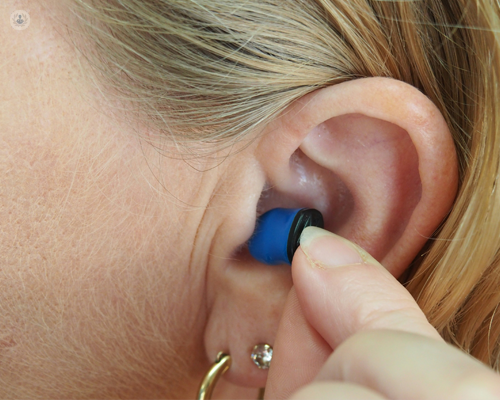Tune out the noise: Effective strategies for managing and reducing tinnitus
Autore:Tinnitus, often described as a ringing, buzzing, or humming sound in the ears, can be an unsettling and persistent condition. It affects people differently, ranging from mild annoyance to a constant distraction that impacts sleep, concentration, and overall well-being. While there’s no cure for tinnitus, effective management strategies can significantly reduce its impact on daily life. Leading consultant ENT surgeon Mr Tony Hinton takes a detailed look at understanding this condition, here.

Understanding tinnitus
Tinnitus is not a disease but a symptom that can be linked to various underlying causes, such as exposure to loud noises, ear infections, or age-related hearing loss. For some, it may result from conditions like Meniere’s disease or temporomandibular joint (TMJ) disorders, while for others, stress and anxiety can amplify its presence.
What are effective strategies for managing tinnitus?
Managing tinnitus often requires a multifaceted approach that combines sound therapy, lifestyle adjustments and sometimes medical treatment. Here are some proven strategies to help reduce its effects:
- Sound therapy: Background noise or "white noise" can mask the internal sounds of tinnitus, making them less noticeable. Using sound machines, apps, or fans at night can promote better sleep and reduce the perception of ringing.
- Cognitive behavioural therapy (CBT): CBT helps individuals change the way they react to tinnitus by addressing the emotional distress it may cause. This therapy can provide coping mechanisms and improve mental resilience.
- Hearing aids: For individuals with hearing loss, hearing aids like the BAHA implant can amplify external sounds, which in turn can make tinnitus less prominent.
- Stress management: Tinnitus can be exacerbated by stress, so learning relaxation techniques such as deep breathing, mindfulness, or yoga may help lower the overall intensity of the symptoms.
Lifestyle adjustments for long-term relief
Certain lifestyle changes can also help minimise tinnitus:
- Limiting exposure to loud noises: Protect your ears by avoiding loud environments or using ear protection when necessary.
- Maintaining a healthy lifestyle: Regular exercise, a balanced diet and good sleep hygiene can improve overall well-being and reduce the perception of tinnitus.
- Reducing caffeine and alcohol: These substances can sometimes intensify tinnitus symptoms in some individuals.
Seeking professional support
While many tinnitus management strategies can be implemented at home, it is important to consult a healthcare professional, such as an audiologist or an ENT specialist, for a comprehensive evaluation. They can recommend further treatments or therapies tailored to your specific needs, such as tinnitus retraining therapy (TRT), medications, or even acupuncture in some cases.
By integrating a combination of sound therapy, cognitive approaches, and lifestyle modifications, it is possible to manage tinnitus effectively and improve quality of life. Although tinnitus can be persistent, finding the right strategy can help in tuning out the noise and restoring a sense of normalcy.
Do you require expert treatment for tinnitus? Arrange a consultation with Mr Hinton via his Top Doctors profile.


